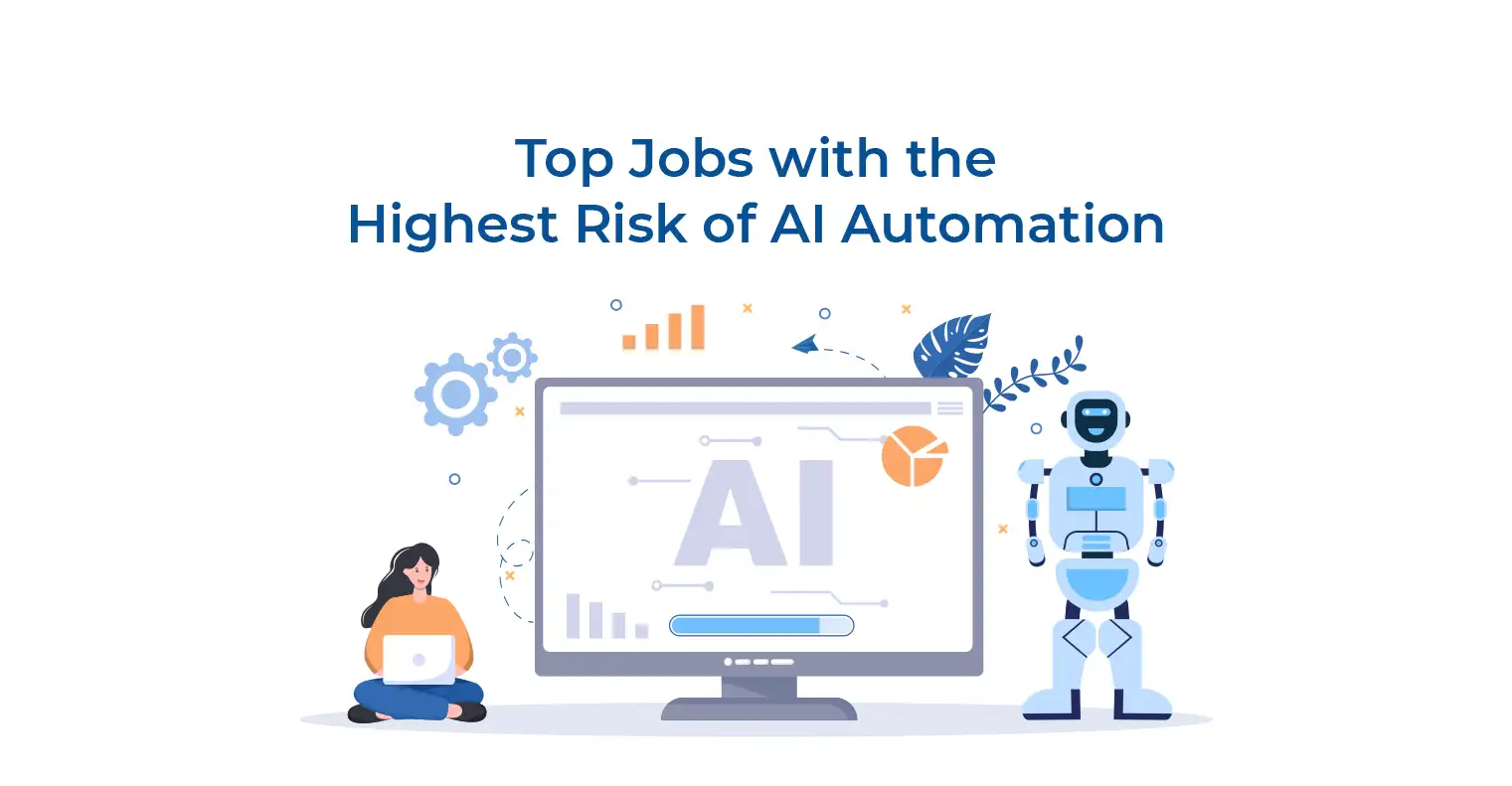 Jothi Kumar
Dec 05, 2024
Jothi Kumar
Dec 05, 2024

AI has witnessed significant advancements over the years, shaping various aspects of our lives. From its humble beginnings to recent breakthroughs, AI has become a prominent force in the technological landscape. Furthermore, its applications span diverse industries, showcasing its potential for transforming sectors such as healthcare, finance, transportation, and more.
Check out: Will Artificial Intelligence Take Over Human Jobs by 2030?
Job displacement by AI is influenced by several factors, including the automation capabilities of AI and the economic motivations for implementing AI in the workforce. As AI continues to advance, there is a growing concern about the potential consequences of AI taking over jobs previously performed by humans.
AI systems excel at automating repetitive and routine tasks, such as data entry, assembly line work, and customer support. These capabilities pose a risk to jobs that primarily involve manual or predictable tasks, leading to discussions about the future of work in an AI-driven world.
Analyzing the job market is crucial to understanding the potential impact of AI on employment. This analysis involves identifying job sectors that are at risk, comparing job characteristics with AI capabilities, and discussing the potential implications for employment rates.
Comparing job characteristics with AI capabilities helps determine the extent to which jobs can be automated. Jobs that are highly predictable, routine, and rule-based are more likely to be replaced by AI. On the other hand, jobs that require complex decision-making, creativity, and interpersonal skills are less prone to automation, as they involve nuanced human judgment and emotional intelligence.
You may also interested in: Jobs Lost to Automation Statistics
The rapid advancements in AI technology have raised concerns about the potential replacement of human workers in various occupations. While the impact of AI on the job market is complex and multifaceted, certain jobs are considered more vulnerable to automation. Here are 10 jobs that are at significant risk of being replaced by AI:
Data entry tasks, involving manual input and processing of information, can be automated through AI algorithms that can scan and digitize data more accurately and efficiently.
With the rise of AI-powered chatbots and virtual assistants, automated systems can handle customer inquiries and provide support, reducing the need for human telemarketers.
Self-checkout systems and automated payment processes, such as mobile payments and AI-driven kiosks, are gradually replacing cashiers in retail environments.
The automation of banking processes, including online banking and AI-powered customer service, reduces the demand for in-person bank tellers.
AI-powered robots and automated systems can perform repetitive tasks on assembly lines, leading to a decline in the need for manual labor in manufacturing industries.
The development of autonomous vehicles and self-driving technologies poses a potential threat to truck drivers, as AI-powered systems can handle long-haul transportation more efficiently and safely.
AI algorithms can analyze vast amounts of legal data, aiding in legal research, document review, and case preparation, potentially reducing the need for human paralegals.
AI-powered chatbots and virtual assistants can handle customer inquiries, troubleshoot problems, and provide support, diminishing the need for human customer service representatives.
Online travel platforms and AI-driven recommendation systems empower individuals to plan and book their trips, reducing reliance on human travel agents.
AI algorithms can generate news articles, summaries, and sports reports by analyzing data and creating content based on predefined templates, impacting certain aspects of journalism and content creation.ChatGPT and other AI language models have demonstrated remarkable capabilities in generating human-like text, they are not meant to replace journalists and writers. Instead, they can serve as valuable tools to assist and augment their work.
Here are 10 jobs that are at significant risk of being replaced by AI, raising the question of what jobs AI will replace. By understanding the potential impact on these specific occupations, we can gain insights into the evolving dynamics of the job market in the face of AI technology.
Checkout the Top AI Skills to Learn
AI presents both challenges and opportunities in various aspects of society. On the one hand, AI has the potential to automate tasks, improve efficiency, and enhance decision-making. However, it also poses challenges and limitations that need to be addressed. Some of these include:
To address these challenges and harness the opportunities presented by AI, institutes like Edoxi plays a crucial role in advancing AI and helping to save jobs. They offer comprehensive AI courses covering machine learning, deep learning, natural language processing, and computer vision. Also Our ChatGPT course equip individuals with the necessary skills to navigate the evolving job market. Edoxi offers comprehensive training to professionals in AI-related skills, fostering a workforce that can adapt to the changing job landscape.
Check Out: What is Generative AI And How Does it Work
In conclusion, while AI brings innovation, it also raises concerns about job displacement. The rapid progress of AI technology intensifies discussions on AI taking over jobs. We must address potential risks and promote strategies like reskilling to adapt. Let's embrace a future where humans and AI collaborate amidst evolving job markets.
Here is the list of other major locations where Edoxi offers Artificial Intelligence Course
Artificial Intelligence Course in Dubai | Artificial Intelligence Course in Qatar

Software and IT Trainer
Jothi is a Microsoft-certified technology specialist with more than 12 years of experience in software development for a broad range of industry applications. She has incomparable prowess in a vast grouping of software development tools like Microsoft Visual Basic, C#, .NET, SQL, XML, HTML, Core Java and Python.
Jothi has a keen eye for UNIX/LINUX-based technologies which form the backbone of all the free and open-source software movement. As a Big data expert, Jothi has experience using several components of the Hadoop ecosystem, including Hadoop Map Reduce, HDFS, HIVE, PIG, and HBase. She is well-versed in the latest technologies of information technology such as Data Analytics, Data Science and Machine Learning.